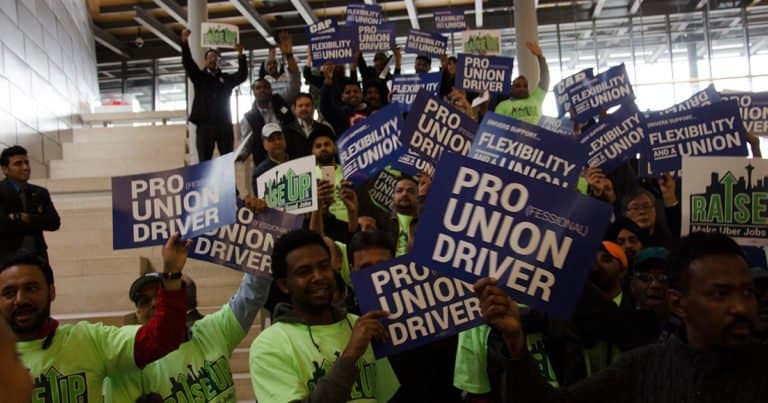
Minnie Che is a student at Harvard Law School.
As President Biden undertakes undoing many of the Trump administration’s anti-immigration policies, immigrant advocates and businesses are worried that the ban put in place last April to bar entry of foreigners, in an effort to protect American workers, has not yet been repealed. Biden has criticized the ban many times during his campaign and has already signed executive orders to stop the construction of the border wall and the ban on travel from certain countries, many of which were Muslim-majority. But he has not taken action to reverse the legal immigration ban. Although it is set to expire at the end of March, businesses are worried that waiting a few months will have an adverse impact on companies’ operations and slow economic recovery. On Friday, over a hundred trade associations and advocacy groups sent the president a letter championing the ban’s reversal. A White House spokesperson has reassured that the administration’s actions are “just the beginning” and may be moving cautiously as they try to keep the pandemic under control. Businesses, especially tech companies, are currently blocked from bringing in high-skilled foreign professionals that they need to fill specific jobs. Companies that rely on seasonal labor have also had to cut back business due to a lack of Americans willing to take temporary, low-paying jobs.
But undoing all of Trump’s anti-immigration policies may not be a quick act. Law professor Lucas Guttentag has spent the last four years documenting every change that the administration has made to the immigration system and logging them into a database. With the help of 70 students, he says the database can serve as a road map for the Biden administration in finding and reversing policies. And there is more than meets the eye. For instance, the Trump administered revised Form N-648, which provides a physician an opportunity to declare an applicant for naturalization unable to complete the civics and English language tests due to a mental impairment or a disability. The administration increased the questions on the form from 12 to 23, focusing on disability and any alleged illegal drug use. This is just one example of a minor revision that may have big consequences for immigration. “Reform means uprooting the tentacles of every policy and undoing every last vestige of the Trump-Miller agenda,” Guttentag reported. “They can be buried under layer after layer of bureaucratic actions and then essentially devastate the system in untold ways that aren’t discovered until policies are applied in particular cases.” His project has documented 1,064 changes related to immigration that the Trump administration made from 2017 to 2021.
Meanwhile, House leaders are hoping to settle the details of the new stimulus bill to send the $1.9 trillion package to Biden’s desk before unemployment benefits begin to expire in mid-March. On Tuesday, the House Education and Labor Committee finalized its provisions, which will provide billions of dollars for school, health care subsidies, and food assistance. Republicans lobbied for amendments restricting the increase of minimum wage and imposing requirements for the reopening of schools, but those were rejected by votes along party lines. If the Democrats advance the plan as a reconciliation bill, only a simple majority is required to pass it. Therefore, it could be passed in the House without Republican support. The House is aiming to finalize the package this week while the Senate remains focused on the impeachment trial of Trump.
Facebook announced yesterday that it had started to change the social network’s algorithm so that users will receive less political content in their newsfeed. This will be first tested on Facebook users in Canada, Brazil, and Indonesia starting this week. Aastha Gupta, a Facebook product management director, wrote that “During these initial tests we’ll explore a variety of ways to rank political content in people’s feeds using different signals, and then decide on the approaches we’ll use going forward.” The change will hit US users in a few weeks and comes on the heels of Zuckerberg saying that the company wanted to tamper down polarizing political debates. After hearing feedback from the community, he believes that people do not want political fights to take over their experience on the platform.
The Chicago Teachers Union have voted to ratify a deal to reopen elementary schools for in-person learning. This will be the first time back in person since last March, when the pandemic closed the schools. After months of negotiations, union members voted 13,681 to 6,585 to reopen. Without an agreement, there would have been a possibility of a lockout or strike, but some union members are not happy with the deal. The union president stated, “This plan is not what any of us deserve. Not us. Not our students. Not their families… The fact that CPS could not delay reopening a few short weeks to ramp up vaccinations and preparations in schools is a disgrace.” The union’s house of delegates also passed a vote of no-confidence in Chicago’s mayor. The plan is for elementary schools to reopen between now and March 8th, with the city reporting to have spent almost $100 million in preparations. However, both sides still need to discuss protocols for vaccinations and possible delay in the reopen. Talks of reopening high schools will also happen soon.






Daily News & Commentary
Start your day with our roundup of the latest labor developments. See all
October 13
Texas hotel workers ratify a contract; Pope Leo visits labor leaders; Kaiser lays off over two hundred workers.
October 12
The Trump Administration fires thousands of federal workers; AFGE files a supplemental motion to pause the Administration’s mass firings; Democratic legislators harden their resolve during the government shutdown.
October 10
California bans algorithmic price-fixing; New York City Council passes pay transparency bills; and FEMA questions staff who signed a whistleblowing letter.
October 9
Equity and the Broadway League resume talks amid a looming strike; federal judge lets alcoholism ADA suit proceed; Philadelphia agrees to pay $40,000 to resolve a First Amendment retaliation case.
October 8
In today’s news and commentary, the Trump administration threatens no back pay for furloughed federal workers; the Second Circuit denies a request from the NFL for an en banc review in the Brian Flores case; and Governor Gavin Newsom signs an agreement to create a pathway for unionization for Uber and Lyft drivers.
October 7
The Supreme Court kicks off its latest term, granting and declining certiorari in several labor-related cases.